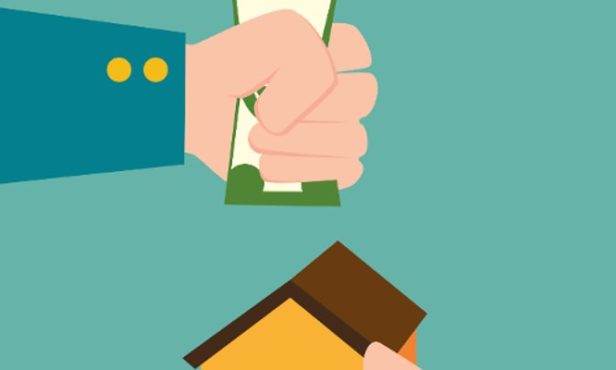Record-low interest rates have stimulated buyer demand, with many taking advantage to borrow more than they might have previously; as a result, the average price of mortgage-funded property sales is now 10% higher than properties purchased by cash buyers in Great Britain, according to Enness Global.
The mortgage vs cash house price gap has been increased by the most significant margin in the North East.
The average property price funded by a mortgage is 15% higher than funded by a cash sale, with the North West and Scotland also home to a double-digit difference (14%).

Enness Global: Transactions in prime London market down substantially on January
However, the average property price for a mortgage-backed purchase in London is currently 5% lower than the average paid by cash buyers (£472,547 vs £499,468).
In a total of 13 boroughs, mortgage-financed house prices are currently lower than those purchased with cash, with Westminster and Merton home to the biggest reduction (-6%), along with Newham (-5%), Islington (-4%), Southwark and Tower Hamlets (-2%).
The gap between mortgage and cash funded property prices was also apparent when looking at price thresholds.
Mortgage property prices up to £100,000 are 15% higher than cash-based house prices, 9% higher between £100-£200k, 5% higher between £200-£400k and 4% higher between £400-£500k.
However, those buying at £500,000 or more with the help of a mortgage are doing so at a marginally lower level when compared with cash buyers (-1%).
Islay Robinson, group CEO of Enness Global Mortgages, said: “Record low rates and the additional carrot of a stamp duty reprieve have caused buyer demand levels to increase at a rapid pace.
“With those securing a mortgage currently able to do so at such favourable rates, many are borrowing that little bit extra to either buy bigger or in a better area.
“The consequence of this is, of course, a higher price paid by mortgage-backed buyers and in any market conditions, paying with cash is always going to enable you to strike a better deal anyway.
“However, the higher price of buying in London means that current buyers are remaining realistic about what they can afford to borrow.
“With steeper price increases between locations and property sizes, this is curving mortgage funded price growth in several boroughs, with cash buyers actually paying more.”
He continued: “Homebuyers buying at the top end of the market, and in prime central London in particular, simply don’t need to overstretch when borrowing to secure the property they want.
“Therefore the balance between the price paid by cash and mortgage financed buyers is far smaller.
“It might sound strange that someone so wealthy would opt to borrow money to fund a purchase, but this is a widespread practice for high net worth individuals.
“Many opt to fund their purchase via a mortgage as it enables them to maintain overall net wealth and removes the often problematic task of rearranging strategically placed assets.
“When you also consider the record low interest rates on offer, it makes perfect business sense in the current climate.
“That’s why in prime pockets such as Kensington, Hammersmith and the City of London, the balance between cash and mortgage house prices is almost flat, while in the likes of Islington and Westminster cash buyers are actually paying a premium.”

